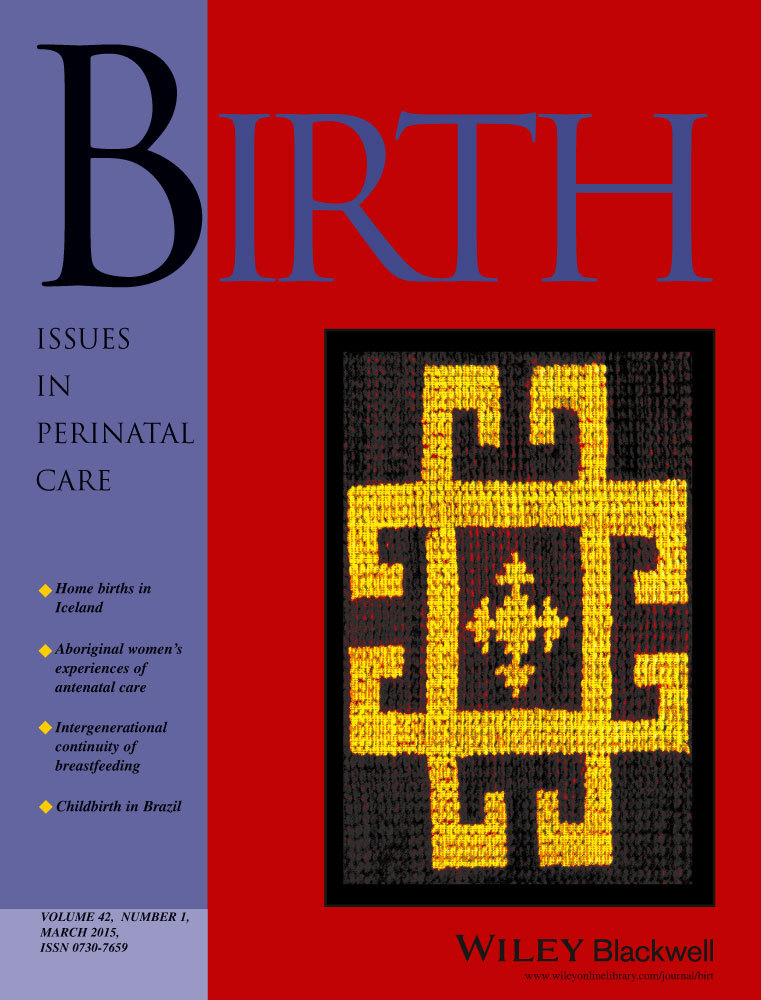Fear of Childbirth and Risk of Cesarean Delivery: A Cohort Study in Six European Countries
Abstract
Background
Few studies have examined the mode of birth among women with fear of childbirth, and the results are conflicting. The objective of this study was to assess the association between fear of childbirth and cesarean delivery in North European women.
Methods
A longitudinal cohort study was conducted among 6,422 pregnant women from Belgium, Iceland, Denmark, Estonia, Norway, and Sweden. Fear of childbirth was measured by the Wijma Delivery Expectancy Questionnaire during pregnancy and linked to obstetric information from hospital records.
Results
Among 3,189 primiparous women, those reporting severe fear of childbirth were more likely to give birth by elective cesarean, (OR, 1.66 [95% CI 1.05–2.61]). Among 3,233 multiparous women, severe fear of childbirth increased the risk of elective cesarean (OR 1.87 [95% CI 1.30–2.69]). Reporting lack of positive anticipation, one of six dimensions of fear of childbirth, was most strongly associated with elective cesarean (OR 2.02 [95% CI 1.52–2.68]). A dose–effect pattern was observed between level of fear and risk of emergency cesarean in both primiparous and multiparous women. Indications for cesarean were more likely to be reported as “nonmedical” among those with severe fear of childbirth; 16.7 versus 4.6 percent in primiparous women, and 31.7 versus 17.5 percent in multiparous women.
Conclusion
Having severe fear of childbirth increases the risk of elective cesarean, especially among multiparous women. Lack of positive anticipation of the upcoming childbirth seems to be an important dimension of fear associated with cesarean delivery. Counseling for women who do not look forward to vaginal birth should be further evaluated.




